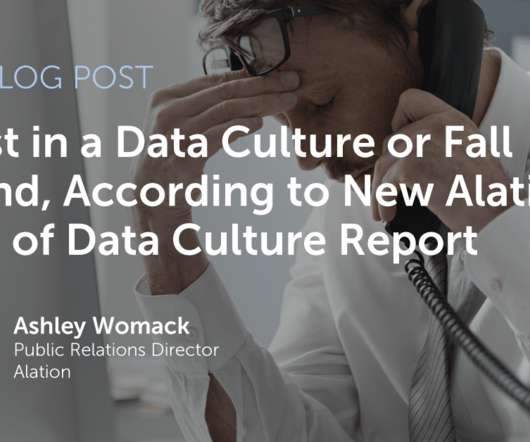Why Data Governance Is Crucial for All Enterprise-Level Businesses
Cloudera
MARCH 3, 2022
Whether the enterprise uses dozens or hundreds of data sources for multi-function analytics, all organizations can run into data governance issues. Bad data governance practices lead to data breaches, lawsuits, and regulatory fines — and no enterprise is immune. . Everyone Fails Data Governance.














Let's personalize your content